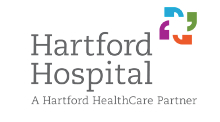Effectiveness and Neuropsychological Predictors of Guided Self-Help for Obsessive-Compulsive Disorder (OCD)
| Status: | Completed |
|---|---|
| Conditions: | Psychiatric |
| Therapuetic Areas: | Psychiatry / Psychology |
| Healthy: | No |
| Age Range: | 18 - 69 |
| Updated: | 4/21/2016 |
| Start Date: | August 2012 |
| End Date: | June 2014 |
Effectiveness and Neuropsychological Predictors of Guided Self-Help for OCD
The primary aim of this study is to learn about who is most likely to benefit from guided
self-help (GSH) for obsessive-compulsive disorder (OCD).
self-help (GSH) for obsessive-compulsive disorder (OCD).
40 Participants with OCD will be recruited. They will be given access to OC Fighter, an
internet OCD treatment program. During the 17 week program, participants will meet with a
therapist 9 times. Assessments will occur at pretreatment, post-treatment, 3-month follow up
and 6-month follow up.
internet OCD treatment program. During the 17 week program, participants will meet with a
therapist 9 times. Assessments will occur at pretreatment, post-treatment, 3-month follow up
and 6-month follow up.
Inclusion Criteria:
- Principal or co-principal diagnosis of OCD
- Clinical global impression score greater than or equal to 4
- Y-BOCS score great than or equal to 8
- Fluency in English
- Capacity to understand the nature of the study and willingness to sign informed
consent form
Exclusion Criteria:
- Active manic episode, psychosis, pervasive developmental disorder, mental retardation
- Concurrent OCD psychotherapy
- Current threat of harm to self or others
- Previous adequate trial of therapist-administered or self-administered exposure and
response prevention for OCD
We found this trial at
1
site
The Hartford Hospital Hartford Hospital is the major teaching hospital affiliated with the University of...
Click here to add this to my saved trials
